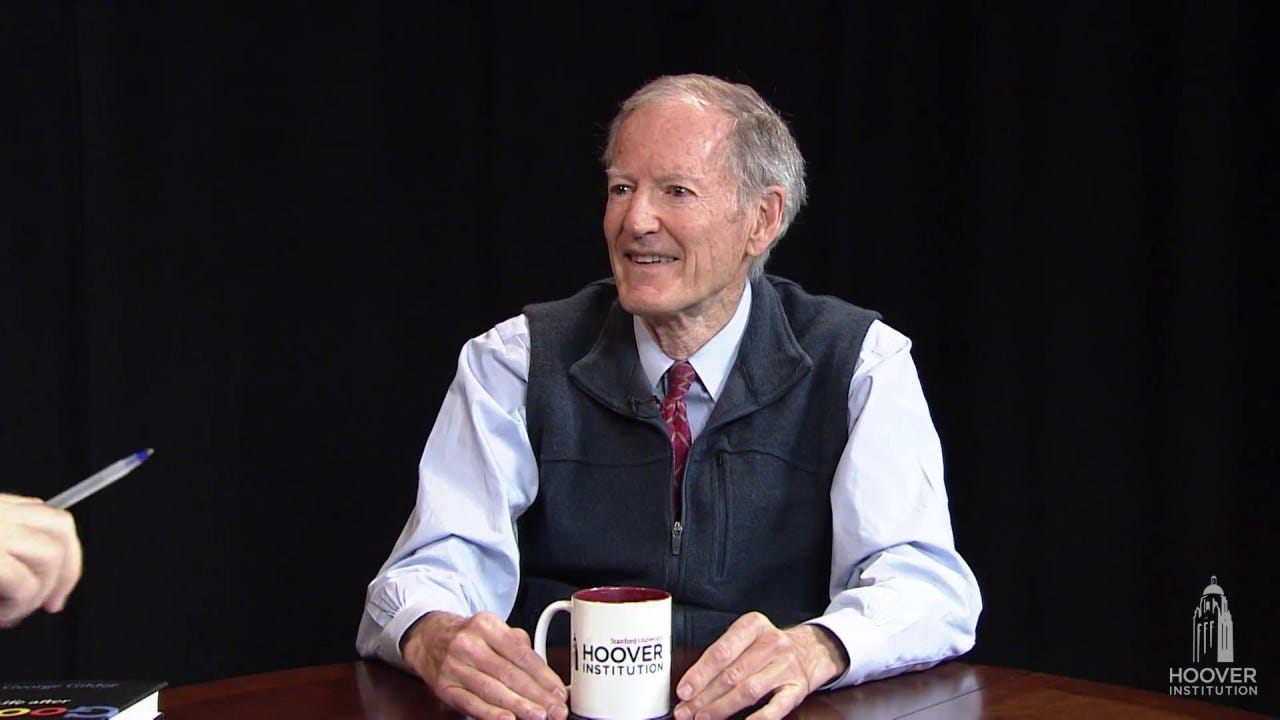George Gilder: Trump is Reagan's True Heir
Few predicted the complete dominance of tax rates over all other economic policies. Yet that is what the decades since Reagan have proved.
This essay is free, but with Premium Membership you get MORE. Join today.
NOTE: My friend George Gilder was Ronald Reagan’s most-quoted living author and one of the principal fathers of the Supply-Side Economics that powered the Reagan boom and ended — for almost half a century now — the postwar every-two-and-a-half-year cycle of recession and “recovery”. His Information Theory of Economics is transformative. He is absolutely a free-trader. So this short essay is significant. — RDM
by George Gilder and Richard Vigilante
July 22, 2025
We are confirmed free traders. Trade flows are information. In our information theory of the economy, nothing is more important than letting information flow undistorted.
Still, we are not especially worried about Trump’s tariff threats because on net, he is doing the economy far more good than bad. The big economics lesson of the past 40 years has been the decisiveness of tax policy.
Few of us free market-types predicted the complete dominance of tax rates ove…





